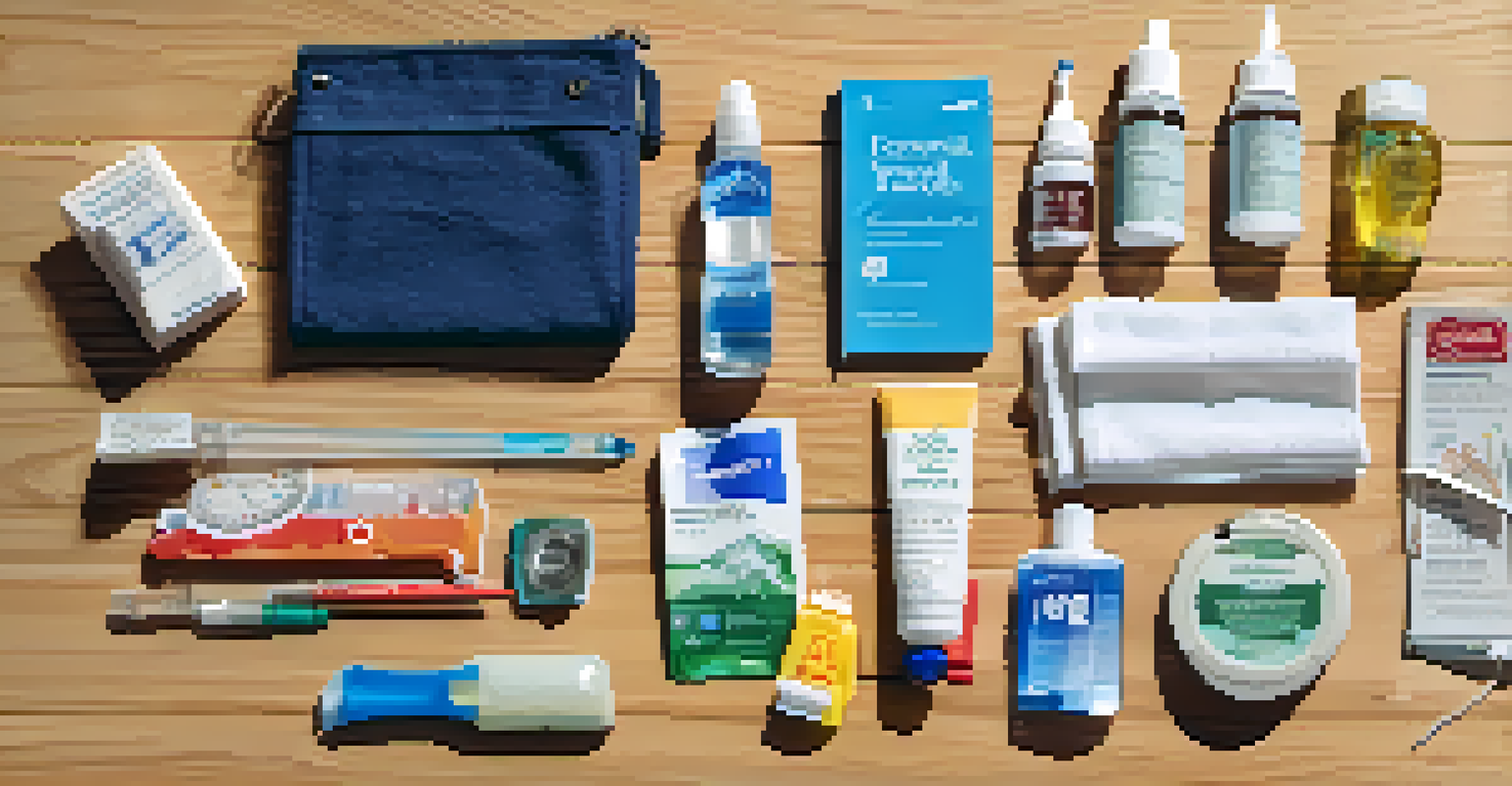How to Prepare for Travel Amidst a Pandemic Effectively

Understand Travel Restrictions and Guidelines
Before you plan your trip, it’s crucial to understand the current travel restrictions. Countries and regions may have specific entry requirements, including quarantine protocols or proof of vaccination. This information can change rapidly, so checking official government websites is a smart move.
Traveling – it leaves you speechless, then turns you into a storyteller.
Don’t forget about local guidelines at your destination. Some areas might still have mask mandates, social distancing rules, or limitations on gatherings. Being informed not only keeps you safe but also helps you respect the local community’s health measures.
Additionally, consider the timing of your travel. Some destinations might be more crowded during certain seasons, which could increase your risk of exposure. Planning your trip during off-peak times can enhance your travel experience while keeping safety a priority.
Get Familiar with Health and Safety Protocols
Understanding health protocols is key to a successful trip. This includes knowing what safety measures airlines and accommodations have in place. For instance, many airlines now require masks and have enhanced cleaning procedures to ensure passenger safety.

You should also familiarize yourself with any health certifications you may need. Some hotels or activities require proof of vaccination or a negative COVID-19 test, so having these documents ready can streamline your travel experience.
Understand Travel Restrictions
Before traveling, stay updated on entry requirements and local guidelines to ensure a safe journey.
Lastly, it's a good idea to keep track of health and safety updates throughout your journey. Apps and websites can provide real-time information, which allows you to stay informed and adapt as necessary.
Pack Essential Travel Supplies
Packing smart is more important than ever. Essentials like masks, hand sanitizer, and disinfecting wipes should be at the top of your list. These items will help you maintain hygiene and feel more comfortable during your travels.
The journey not the arrival matters.
Consider also bringing a thermometer to monitor your temperature, as some places may require health checks upon arrival. Having a small first-aid kit can be useful too, especially if you have any pre-existing conditions.
Lastly, don’t forget to pack any necessary documents related to your health status, such as vaccination cards or test results. Having everything organized will reduce stress and help you navigate any potential hurdles.
Choose Flexible Travel Options
Flexibility is key in today’s travel landscape. Opt for airlines and accommodations that offer flexible booking policies. This way, if something changes—like a sudden spike in cases—you can modify your plans without incurring hefty fees.
Consider travel insurance that covers COVID-19-related disruptions. This ensures that you’re protected financially should your trip be canceled or interrupted due to health concerns.
Prioritize Health and Safety
Familiarize yourself with health protocols and pack essential supplies to protect yourself while traveling.
Additionally, look for activities or tours that allow for easy rescheduling. This flexibility can make a big difference in your overall travel experience, allowing you to adapt as needed.
Stay Informed About Your Destination
Knowledge is power, especially when traveling during a pandemic. Research your destination thoroughly, including local COVID-19 infection rates and vaccination statistics. This will give you a clearer picture of the safety landscape.
Stay connected to local news and updates, as situations can change rapidly. A sudden surge in cases could lead to new restrictions, so being aware will help you make informed decisions while traveling.
Engaging with locals can also provide insights into how they are navigating the pandemic. This not only enriches your travel experience but can also guide you on the best practices to follow.
Practice Personal Health and Safety Measures
Taking care of your health during travel is paramount. Regularly wash your hands and use hand sanitizer, especially after touching surfaces in public areas. This simple habit significantly reduces the risk of infection.
Wearing a mask, particularly in crowded places, is another effective way to protect yourself and others. Choose a comfortable mask that you can wear for extended periods, as it will likely become a part of your travel attire.
Embrace Flexibility in Travel Plans
Choose flexible booking options and stay informed about your destination to adapt as needed during your trip.
Finally, listen to your body. If you start feeling unwell, it’s best to seek medical attention promptly. Prioritizing your health ensures that you can enjoy your trip while also minimizing risks.
Know What To Do If You Get Sick
Despite all precautions, illness can still strike while traveling. Familiarize yourself with the healthcare options available at your destination. Knowing where to find a clinic or hospital can save you valuable time if you need help.
Have a plan for what to do if you test positive for COVID-19 while away from home. This includes knowing how to isolate, the local regulations about quarantine, and how to get back home safely if necessary.

Additionally, keep emergency contacts handy, including your country's embassy or consulate. They can provide assistance and guidance during challenging situations, ensuring you have support when you need it most.
Embrace the Travel Experience with Caution
Traveling during a pandemic might feel daunting, but it can still be an enriching experience. Embrace the adventure while staying cautious and respectful of health guidelines. Enjoying local sights and cultures can provide a much-needed escape from daily routines.
Be open to adjusting your plans as necessary, whether that means changing your itinerary or trying new activities. Flexibility allows you to make the most of your trip, even in uncertain times.
Finally, remember to share your experiences with friends and family. This not only keeps them informed but can also inspire others to travel safely and thoughtfully during these challenging times.